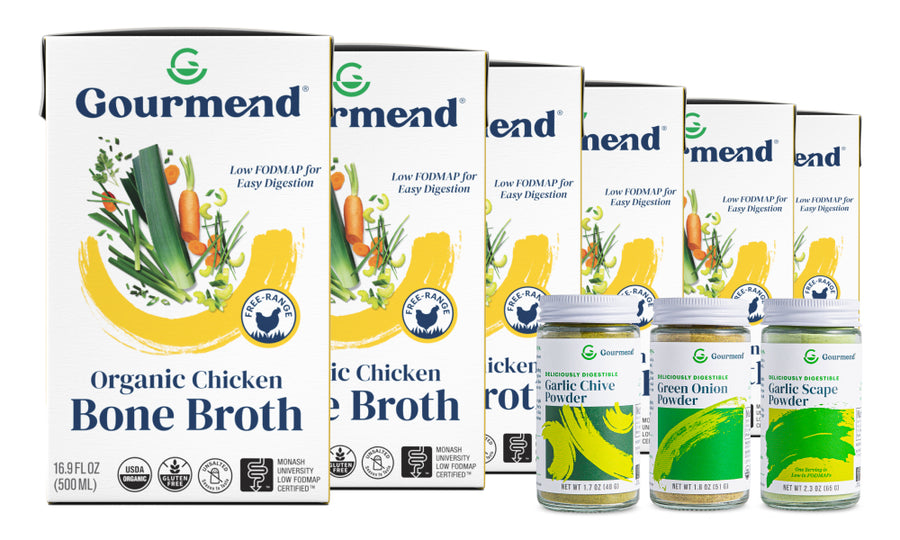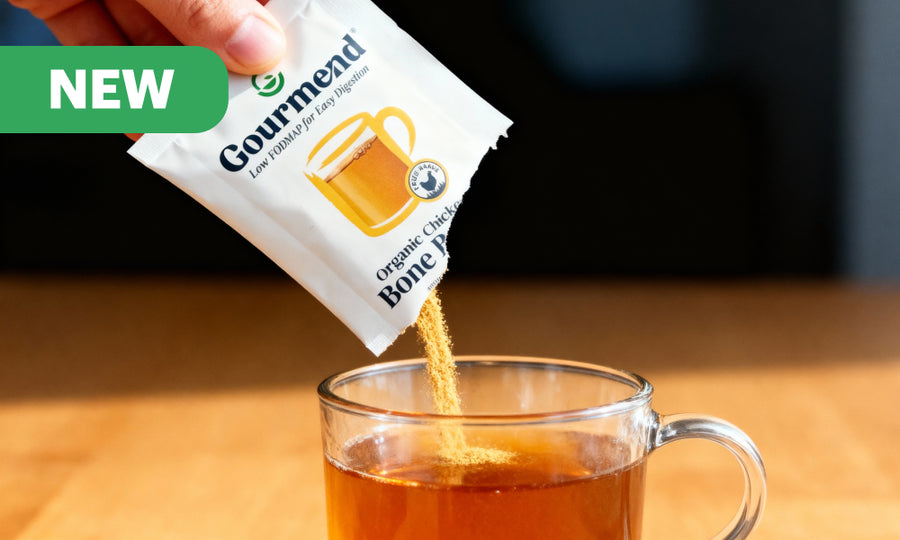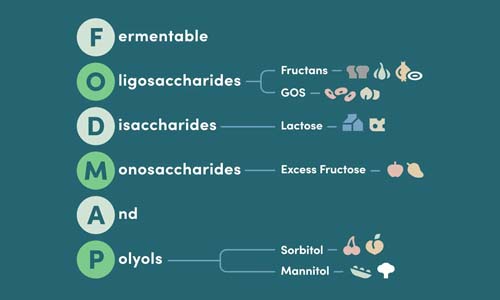7 Ways Bone Broth Powder Boosts Athletic Recovery

If you're pushing your body to its limits through intense training, you've probably experienced that familiar post-workout soreness and fatigue that can sideline even the most dedicated athletes. While many reach for synthetic supplements or sports drinks, there's a centuries-old recovery secret that's making a major comeback in modern athletic circles: bone broth powder. This concentrated powerhouse delivers the same joint-supporting collagen, muscle-repairing amino acids, and gut-healing nutrients found in traditional bone broth, but in a convenient, portable form that fits seamlessly into any athlete's routine.
Key Takeaways
- Bone broth powder offers a convenient and portable way to support athletic recovery.
- It contains collagen that helps maintain healthy joints.
- The powder provides amino acids essential for muscle repair.
- Bone broth powder includes nutrients that promote gut health.
- This traditional recovery aid is regaining popularity among modern athletes.
Table of Contents
- Superior Collagen Content for Joint Repair and Mobility
- Complete Amino Acid Profile for Enhanced Muscle Recovery
- Natural Electrolyte Balance Without Artificial Additives
- Enhanced Gut Health for Better Nutrient Absorption
- Powerful Anti-Inflammatory Compounds for Faster Recovery
- Sleep Quality Optimization for Peak Performance
- Convenient, Portable Nutrition for Busy Athletes
- Bone Broth Powder vs. Liquid: Which Delivers Better Results?
- Timing Strategies for Maximum Benefit
- Quality Markers: Choosing the Best Powdered Bone Broth
Unlike regular broth made from vegetables or meat scraps, bone broth powder comes from bones that have been slow-simmered for 12-24 hours to extract maximum collagen, minerals, and amino acids. The resulting liquid is then carefully dehydrated to preserve these nutrients in a shelf-stable powder form. This process concentrates the beneficial compounds that make bone broth such a recovery powerhouse, delivering 15-20 grams of protein per serving along with naturally occurring electrolytes and anti-inflammatory compounds.
The beauty of bone broth powder lies in its versatility. You can mix it with hot water for an instant recovery drink, blend it into smoothies for added protein, or even incorporate it into post-workout meals. For athletes dealing with digestive sensitivities—a common issue when training intensely—choosing a low FODMAP certified option ensures you get all the benefits without triggering uncomfortable symptoms that could derail your training schedule.
Superior Collagen Content for Joint Repair and Mobility
Every time you train, you're creating microscopic tears in your connective tissues, tendons, and joint cartilage. While this damage is necessary for adaptation and strength gains, your body needs the right building blocks to repair and strengthen these structures. Bone broth powder delivers concentrated collagen—the most abundant protein in your body and the primary component of cartilage, tendons, and ligaments.
Traditional bone broth packets contain types I, II, and III collagen, each serving different functions in your body. Type I collagen supports skin, bones, and tendons, while type II specifically targets joint cartilage. Type III works alongside type I to maintain the structure of muscles and blood vessels. When you consume bone broth collagen powder, you're providing your body with the specific amino acids it needs to synthesize new collagen and repair exercise-induced damage.
Research shows that athletes who supplement with collagen experience reduced joint pain and improved mobility compared to those who don't. The glycine, proline, and hydroxyproline found in bone broth powder are particularly important for collagen synthesis. These amino acids become conditionally essential during periods of intense training when your body's demand exceeds its ability to produce them naturally. [Source]
Complete Amino Acid Profile for Enhanced Muscle Recovery

While whey protein gets most of the attention in athletic circles, bone broth powder offers a unique amino acid profile that complements traditional protein sources perfectly. The amino acids in bone broth powder aren't just about building muscle—they're about optimizing recovery, reducing inflammation, and supporting the systems that keep you training consistently.
Glycine, one of the most abundant amino acids in bone broth powder, plays a crucial role in muscle protein synthesis and has powerful anti-inflammatory properties. Studies have shown that glycine supplementation can reduce muscle damage markers and improve recovery time between training sessions. This amino acid also supports better sleep quality by helping regulate your body's internal temperature and neurotransmitter balance—critical factors for athletic recovery.
Arginine, another key amino acid in quality bone broth powder, supports nitric oxide production, which enhances blood flow to working muscles during exercise and recovery. Better blood flow means more efficient delivery of nutrients and oxygen to damaged tissues, accelerating the repair process. Proline and hydroxyproline specifically support collagen synthesis, while glutamine helps maintain immune function during periods of intense training stress.
Natural Electrolyte Balance Without Artificial Additives
Commercial sports drinks are loaded with artificial colors, flavors, and synthetic electrolytes that can cause digestive upset, especially for athletes with sensitive stomachs. The best bone broth powder provides natural electrolytes from the mineral-rich bones used in the slow-simmering process, delivering sodium, potassium, magnesium, and calcium in forms your body readily absorbs.
These naturally occurring electrolytes support proper muscle contraction, nerve function, and fluid balance without the blood sugar spikes associated with high-sugar sports drinks. The sodium content in bone broth powder helps replace what you lose through sweat, while magnesium supports muscle relaxation and prevents cramping. Calcium works synergistically with magnesium to optimize muscle function and bone health.
For athletes following specific dietary protocols or dealing with digestive sensitivities, choosing organic, clean-label bone broth powder packets ensures you're getting pure nutrition without hidden additives that could trigger symptoms. Look for products that use only real ingredients—bones from grass-fed animals, organic vegetables like chives and leek greens, and natural seasonings without artificial flavors or preservatives.
The convenience factor can't be overstated. While homemade bone broth requires 24+ hours of simmering and careful storage, bone broth powder packets can be mixed anywhere, anytime. Toss a few packets in your gym bag, travel kit, or desk drawer, and you'll always have access to high-quality recovery nutrition. This consistency in your recovery routine can make the difference between plateauing and continuing to progress toward your athletic goals.
Enhanced Gut Health for Better Nutrient Absorption
Your digestive system takes a beating during intense training periods, and poor gut health can sabotage even the most carefully planned nutrition strategy. The gelatin and glycosaminoglycans in bone broth powder work to repair and strengthen your intestinal lining, creating optimal conditions for nutrient absorption. When your gut is functioning properly, you'll actually utilize more of the nutrients from your food and supplements, making your entire recovery protocol more effective.
The amino acid glutamine, abundant in quality bone broth powder, serves as the primary fuel source for intestinal cells. During periods of high training stress, your glutamine stores become depleted, potentially compromising gut barrier function. This can lead to increased inflammation, poor nutrient absorption, and even food sensitivities that weren't present before. Regular consumption of bone broth powder helps maintain adequate glutamine levels, supporting both gut health and immune function.
For athletes dealing with digestive issues, choosing a low FODMAP certified bone broth powder can be game-changing. Many conventional sports nutrition products contain ingredients like onion powder, garlic, or high-fructose sweeteners that can trigger symptoms in sensitive individuals. Clean-label options made with gut-friendly ingredients like chives and leek greens provide the same savory flavor without the digestive distress.
Powerful Anti-Inflammatory Compounds for Faster Recovery
 Gourmend Foods">
Gourmend Foods">
Chronic inflammation is the enemy of athletic performance and recovery. While some inflammation immediately post-exercise is normal and necessary for adaptation, prolonged inflammatory states can lead to overtraining, increased injury risk, and poor performance. The best powdered bone broth contains naturally occurring compounds that help modulate your body's inflammatory response, promoting faster recovery between training sessions.
The glycine in bone broth powder acts as a powerful anti-inflammatory agent, helping to reduce pro-inflammatory cytokines that can keep you sore and tired long after your workout ends. Studies have shown that athletes who maintain higher glycine levels experience less exercise-induced inflammation and recover more quickly from intense training bouts. This translates to better performance in subsequent workouts and reduced risk of overuse injuries.
Chondroitin sulfate and glucosamine, naturally present in bone broth made from cartilage-rich bones, provide additional anti-inflammatory benefits specifically targeted at joint health. Unlike synthetic versions found in many supplements, these compounds occur in their natural matrix alongside complementary nutrients that enhance absorption and effectiveness. The result is more comprehensive joint support that addresses both immediate post-exercise inflammation and long-term joint health.
Natural Pain Relief Properties
The combination of amino acids and minerals in bone broth powder creates a natural pain-relieving effect that can reduce your reliance on over-the-counter medications. Glycine acts on pain receptors in the spinal cord, while magnesium helps relax tense muscles and reduce cramping.
Stress Hormone Regulation
Intense training elevates cortisol and other stress hormones that can impair recovery if they remain elevated. The adaptogenic properties of certain amino acids in bone broth powder help normalize stress hormone levels, promoting better sleep and faster recovery.
Sleep Quality Optimization for Peak Performance
Quality sleep is when the magic of athletic adaptation happens, and bone broth powder can significantly improve both sleep onset and sleep depth. The glycine content acts as a natural sleep aid by lowering your core body temperature and promoting the release of neurotransmitters that signal it's time to rest. Unlike synthetic sleep aids that can leave you groggy, the sleep-promoting effects of bone broth powder feel completely natural.
Athletes who consume bone broth powder in the evening often report falling asleep faster and experiencing more restorative deep sleep phases. This is crucial because growth hormone release, protein synthesis, and tissue repair all peak during deep sleep stages. Better sleep quality means more efficient recovery, improved immune function, and better performance the next day.
The magnesium naturally present in bone broth powder packets also contributes to sleep quality by activating the parasympathetic nervous system—your body's "rest and digest" mode. This mineral helps quiet the mental chatter that often keeps athletes awake, especially after evening training sessions when adrenaline levels are still elevated.
Convenient, Portable Nutrition for Busy Athletes
The reality of athletic life means you're often eating on the go, traveling to competitions, or trying to squeeze in nutrition between work and training commitments. Bone broth powder packets solve the portability problem that comes with liquid bone broth while delivering the same concentrated nutrition. You can easily pack several packets in your gym bag, suitcase, or car without worrying about refrigeration or spoilage.
This convenience factor becomes crucial during competition seasons when your schedule is packed and stress levels are high. Having reliable, gut-friendly nutrition that mixes instantly with hot water means you're never more than a few minutes away from quality recovery nutrition. The versatility of bone broth powder also means you can use it in multiple ways throughout the day—as a pre-workout warm-up drink, a post-training recovery beverage, or even mixed into meals for added protein and minerals.
For athletes following specific dietary protocols, finding products that align with your nutritional needs is essential. Look for organic, grass-fed options that avoid common trigger ingredients and artificial additives. The best bone broth powder delivers clean, concentrated nutrition that supports your training goals without compromising your digestive health or dietary requirements.
The combination of convenience, concentrated nutrition, and gentle digestibility makes bone broth powder an ideal addition to any serious athlete's recovery toolkit. Whether you're training for your first marathon or competing at elite levels, the consistent use of quality bone broth powder can help you recover faster, train harder, and perform at your peak when it matters most.
Bone Broth Powder vs. Liquid: Which Delivers Better Results?

The debate between powdered and liquid bone broth often comes down to convenience versus tradition, but the nutritional differences are more nuanced than you might expect. High-quality bone broth powder undergoes gentle dehydration processes that preserve most of the beneficial compounds found in liquid versions. The key is understanding that both forms can deliver excellent results when sourced and processed properly.
Liquid bone broth, especially when made from grass-fed bones and simmered for 12-24 hours, contains the full spectrum of nutrients in their natural ratios. You'll get the complete amino acid profile, naturally occurring electrolytes, and that characteristic gel-like texture that indicates high collagen content. However, the convenience factor can't be ignored—liquid bone broth requires refrigeration, has a limited shelf life, and isn't practical for travel or immediate post-workout consumption.
The best bone broth powder bridges this gap by concentrating these same nutrients into a shelf-stable form that reconstitutes instantly. Quality matters enormously here—look for products made from grass-fed bones that use low-temperature drying methods to preserve heat-sensitive compounds. Some manufacturers use spray-drying techniques that can damage delicate amino acids, while others employ freeze-drying or other gentle processes that maintain nutritional integrity.
Concentration Advantages
Bone broth powder actually offers some unique advantages in terms of nutrient density. The dehydration process removes water while concentrating the beneficial compounds, meaning you can get more protein and collagen per serving compared to liquid versions. This makes it particularly valuable for athletes who need maximum nutrition in minimal volume.
Digestibility Factors
Some athletes find that bone broth powder packets are easier to digest immediately post-workout when the stomach is sensitive. The powder form allows for controlled dilution, so you can start with a lighter concentration and adjust based on your tolerance and needs.
Timing Strategies for Maximum Benefit
When you consume bone broth powder can significantly impact its effectiveness for athletic recovery. The amino acid profile and mineral content make it suitable for different phases of your training and recovery cycle, but strategic timing can amplify the benefits considerably.
Pre-workout consumption, about 30-60 minutes before training, provides readily available amino acids that can help prevent muscle breakdown during intense sessions. The electrolytes support proper hydration status, while the gentle protein load won't cause digestive distress during exercise. This is particularly valuable for morning workouts when you haven't eaten for several hours.
The post-workout window is where bone broth powder really shines for recovery purposes. Consuming it within 30 minutes of finishing your session provides the raw materials your body needs to begin repair processes immediately. The combination of complete proteins and anti-inflammatory compounds helps kickstart recovery while reducing exercise-induced muscle damage.
Evening Recovery Protocol
Consuming collagen bone broth powder 1-2 hours before bed maximizes its sleep-promoting and recovery benefits. The glycine content helps lower core body temperature and promotes deeper sleep phases when growth hormone release and tissue repair are at their peak.
Competition Day Strategy
On competition days, bone broth powder packets offer gentle, easily digestible nutrition that won't upset your stomach. The familiar taste and warming effect can also provide psychological comfort during high-stress situations.
Quality Markers: Choosing the Best Powdered Bone Broth
Not all bone broth powder is created equal, and understanding quality markers can help you choose products that deliver real results rather than just marketing promises. The source of the bones is your first consideration—grass-fed, pasture-raised animals provide superior nutrient profiles and avoid the antibiotics, hormones, and inflammatory omega-6 fatty acids found in conventionally raised livestock.
Processing methods make a huge difference in final product quality. Look for companies that use slow-simmering techniques for 12-24 hours before dehydration, as this extended cooking time is necessary to extract maximum collagen and minerals from the bones. Some manufacturers take shortcuts by using shorter cooking times or adding synthetic collagen, which doesn't provide the same comprehensive amino acid profile as naturally extracted bone broth.
Clean labeling is essential for athletes who need to know exactly what they're putting in their bodies. The best products contain only bones, vegetables, herbs, and spices—no artificial flavors, preservatives, or fillers. For athletes with sensitive stomachs, choosing low FODMAP certified options ensures you won't experience digestive issues that could impact training or performance.
Third-Party Testing and Certifications
Quality bone broth powder should undergo third-party testing for heavy metals, pesticides, and other contaminants. Look for products that provide certificates of analysis or mention specific testing protocols on their packaging or website.
Protein Content Verification
Check the protein content per serving and compare it to the total serving size. High-quality bone broth powder should provide at least 10-15 grams of protein per serving, with a significant portion coming from collagen-specific amino acids like glycine, proline, and hydroxyproline.
The athletic benefits of bone broth powder extend far beyond basic protein supplementation. From supporting joint health and reducing inflammation to optimizing sleep quality and providing convenient nutrition, quality bone broth powder addresses multiple aspects of athletic recovery in a single, natural product. When chosen carefully and used strategically, it becomes an invaluable tool for any athlete serious about maximizing their recovery and performance potential.
For athletes looking to incorporate bone broth into their nutrition strategy, we recommend exploring low FODMAP cooking approaches that support both performance and digestive health. Remember that our Gourmend Foods bone broths are actually concentrated bone broths, not just regular broths, providing the full spectrum of nutrients that serious athletes need for optimal recovery and performance.
If you're interested in more ways to incorporate bone broth powder into your meals, check out our Low FODMAP Recipes blog for inspiration. You can also learn more about the science and benefits of gut-friendly eating in our Learn blog section. For those with specific dietary needs, our FODMAP blog offers helpful tips and resources.
Check out our Low Fodmap Organic Chicken Broth
Frequently Asked Questions
Is powdered bone broth good for you?
Powdered bone broth can be a nutritious addition to your diet as it often contains collagen, amino acids, and minerals that support joint, skin, and gut health. However, the quality and nutrient content depend on the source and processing method. When made from high-quality bones and minimally processed, it can be a convenient and beneficial supplement.
Is bone broth powder just as good as liquid?
Bone broth powder can be just as good as liquid bone broth if it’s made properly, preserving the nutrients and proteins. The main difference lies in convenience and shelf life — powders are easier to store and use on the go. However, some people prefer liquid for its richer flavor and hydration benefits.
What's the difference between bone broth and bone broth powder?
Bone broth is a liquid made by simmering animal bones for an extended time, extracting nutrients like collagen, minerals, and amino acids. Bone broth powder is dehydrated bone broth that’s been dried into a powder for convenience and longer shelf life. While both contain similar nutrients, the powder is more portable and easier to store but may lack some of the fresh taste and texture of liquid broth.
Which is better collagen powder or bone broth?
Collagen powder is a more concentrated source of collagen peptides, often derived from specific parts like skin or connective tissue, making it efficient for skin and joint support. Bone broth provides a broader range of nutrients, including collagen plus minerals and amino acids. The choice depends on your health goals—collagen powder for targeted collagen intake, and bone broth for a more holistic nutrient profile.
What is the downside of bone broth?
One downside of bone broth is that it can sometimes contain high levels of heavy metals like lead if the bones used are contaminated. Additionally, it may not provide a complete protein source and might be low in calories, so it shouldn’t replace balanced meals. Some people may also experience digestive discomfort if they consume it in large amounts.
How much powdered bone broth should I drink daily?
A typical daily serving of powdered bone broth is about one to two scoops, which usually equates to one cup of prepared broth. This amount provides beneficial collagen and nutrients without overloading your system. It's best to follow the specific product recommendations and listen to your body’s response when adding it to your routine.





